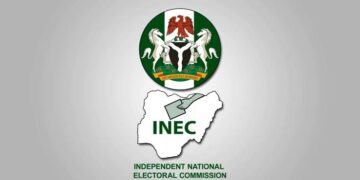The Chairman of the Presidential Committee on Fiscal Policy, Taiwo Oyedele, recently provided detailed insights into the federal government’s decision not to implement a fixed or pegged exchange rate for calculating Customs import duties.
This clarification comes in response to widespread concerns from stakeholders in the import and export sector regarding the fluctuating exchange rates that have posed significant challenges for trade and manufacturing in Nigeria.
In a statement released on Tuesday, Oyedele explained that while there have been calls for the president to sign an executive order to implement a fixed exchange rate for Customs duties, the process is not that straightforward.
According to him, the current legislation, particularly the newly repealed and reenacted 2023 Customs Act, mandates the use of a market-driven exchange rate.

This means the president cannot simply bypass this law with an executive order, as it would be in direct conflict with the provisions laid out in the act.
“The biggest challenge,” Oyedele pointed out, “is that the Nigeria Customs Service was repealed and reenacted in 2023, and in that law, it clearly states that the exchange rate used for Customs must be the official exchange rate. Even though we drafted an executive order, the president cannot just sign it to override the law.”
He further elaborated that to implement a fixed exchange rate for Customs duties in the future, the law itself would need to be modified.
This would require legislative processes, passing through the National Assembly before any changes could take effect.
Oyedele reassured that the government is aware of the importance of such interventions to improve business operations and ease of trade within the country.
His committee is actively working toward finding solutions that would make exchange rate adjustments possible in the near future.
“We then have to go through the process of trying to change the language in the law so that when it becomes necessary, maybe later in the future, it will not be as complicated as it is now.
But I think there’s a general understanding within the government that these interventions are extremely important,” he added.
Withholding Tax Regulations Gazetted,
In addition to the discussions around the exchange rate, Oyedele provided some positive news about recent tax reforms. He revealed that the new withholding tax regulations have now been officially gazetted by the federal government.
The gazette formalizes these regulations, and their implementation will begin immediately from the next day, Wednesday, following the conclusion of all necessary approvals from various levels of government.
This development is expected to bring some much-needed relief to manufacturers and small businesses across the country. Oyedele emphasized the significance of this measure, stating, “I do have some good news.

The good news is that the withholding tax regulation has now been gazetted. The only reason why it hasn’t been published today is because it’s a public holiday. So first thing tomorrow, you’ll see a copy of the gazette.”
The withholding tax reform, according to Oyedele, is designed to ease the financial burden on businesses, particularly in terms of managing their working capital and reducing the interest rates they incur.
“That provides a lot of relief not only for manufacturers but also for every other business, in terms of taking away some of the burdens related to funding their working capital, even their interest rates,” he noted.
Challenges of a Fluctuating Exchange Rate;
The issue of fluctuating exchange rates, particularly as it relates to Customs import duties, remains a significant hurdle for businesses operating in the import and export sector.
As the naira continues to experience volatility in the foreign exchange market, importers and manufacturers are forced to adjust to unpredictable costs when bringing goods into the country.
The exchange rate, typically tied to the ever-shifting value of the naira against the U.S. dollar, complicates trade planning, making it difficult for businesses to forecast costs and manage their operations efficiently.
Many businesses, especially manufacturers, have had to adopt a replacement cost model, whereby they adjust prices based on the cost of replacing goods at current market rates.
This has led to considerable challenges, particularly as exchange rates fluctuate rapidly, making it difficult to maintain price stability for both importers and consumers.
Several industry groups, including the Manufacturers Association of Nigeria (MAN), have been vocal in urging the federal government to take measures that would stabilize the import duty rates.
They argue that fixing import duties, rather than tying them to the floating exchange rate, would provide a more predictable and stable environment for businesses to operate, facilitating smoother trade both within Nigeria and internationally.
Given the persistent volatility of the naira and the challenges this poses to business operations, Oyedele’s clarification on the federal government’s stance on Customs duties and the exchange rate law offers valuable insight.
It also highlights the complexity of implementing such changes, particularly in the face of legislation that mandates a market-driven approach to exchange rates.
Floating Exchange Rate: Counterproductive to Trade;
The ongoing discussion around the exchange rate for Customs duties raises broader questions about the effectiveness of a floating exchange rate system in promoting efficient trade.
With the naira’s declining value against the dollar and other major currencies, businesses have found it increasingly difficult to operate in a stable and predictable environment.
The floating exchange rate system, which is determined by the forces of supply and demand in the foreign exchange market, has led to sharp increases in the cost of imported goods, further complicating trade operations.
Many experts argue that in a country like Nigeria, where economic stability is already fragile, tying import duties to a floating exchange rate could be counterproductive.
They contend that adopting a fixed exchange rate for Customs duties would provide much-needed stability, allowing businesses to better plan and manage their operations.
However, as Oyedele pointed out, such a change would require a modification of existing laws, which would take time and require cooperation from both the executive and legislative branches of government.
While the government is making strides to improve the business environment through tax reforms and other measures, the issue of exchange rate fluctuations remains a critical challenge for businesses.
The federal government’s refusal to implement a fixed exchange rate for Customs duties, for now, reflects the legal and structural challenges of such a move, but there is hope that future legislative changes could make this a possibility.
Meanwhile, the new withholding tax regulations provide a glimmer of hope for manufacturers and small businesses, offering some relief amid the challenging economic environment.


































